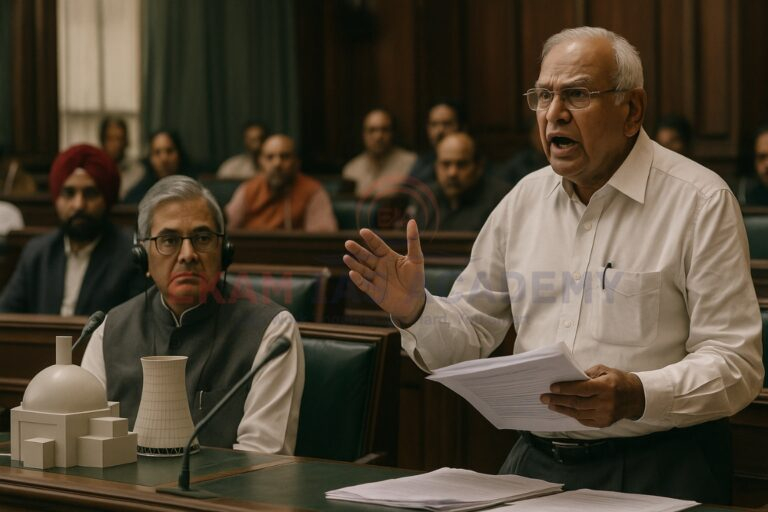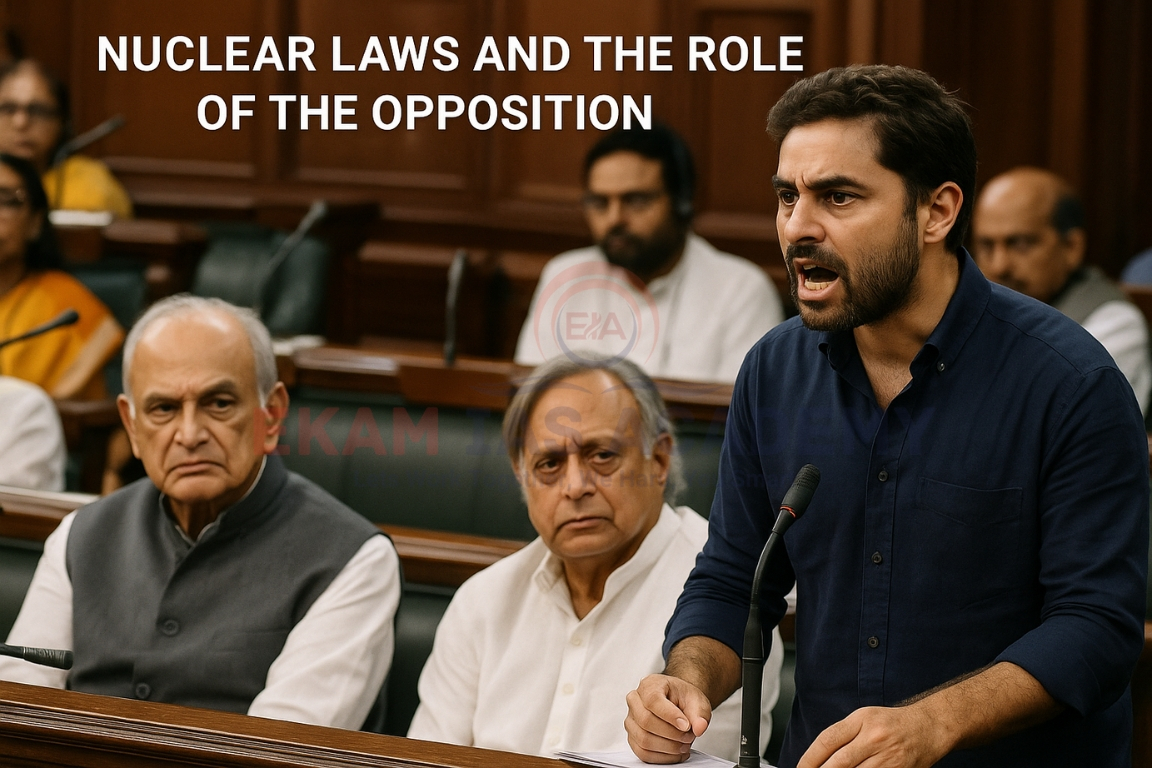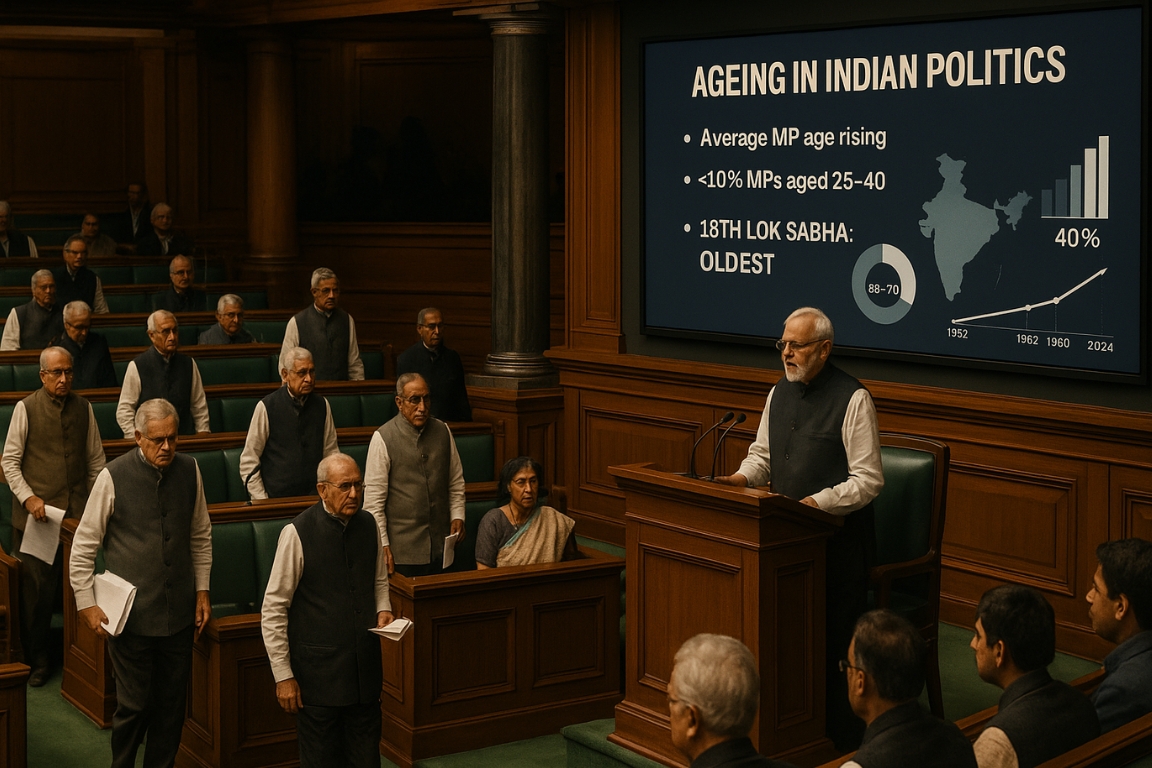The Union Government is planning to amend the Civil Liability for Nuclear Damages Act (CLNDA), 2010 and the Atomic Energy Act (AEA), 1962 in the upcoming Parliament session. The move aims to reduce supplier liability and allow private participation in nuclear energy, sparking debates on accountability, safety, and foreign influence.
Background
- CLNDA, 2010 was passed after intense debate, mainly on compensation for nuclear accidents.
- Opposition parties at the time (BJP and Left) pushed for higher liability for equipment suppliers, especially after disasters like Bhopal Gas Leak (1984) and Fukushima (2011).
- Western suppliers resisted due to fear of unlimited liability, stalling nuclear cooperation.
- Atomic Energy Act, 1962 governs nuclear power; discussions on opening it up to private players have been ongoing since the Raja Ramanna Committee Report (1997).
Proposed Amendments
- CLNDA Changes: Dilute supplier liability for nuclear accidents. Align Indian law closer with international conventions like the Convention on Supplementary Compensation (CSC).
- AEA Changes: Permit private sector entry into nuclear energy. Encourage investment in new technologies like Small Modular Reactors (SMRs).

Concerns Raised
- Congress objections (Feb 2025):
- Dilution of accountability for suppliers.
- Higher risks for citizens in case of accidents.
- Tilt towards foreign corporations, particularly U.S. and French firms.
- Critics argue this protects foreign suppliers while shifting burden on Indian operators and citizens.
Nuclear Energy in India – Current Status
- Nuclear power contributes only ~3% of total electricity.
- Installed capacity: 24 reactors, 8.8 GW (as of 2024).
- Targets:
- 22.48 GW by 2031-32
- 100 GW by 2047 (centenary of Independence).
- Ambitious goals require massive investment and new technology adoption.
ATOMIC ENERGY ACT, 1962
- Central Control – The Act gives the Central Government exclusive authority over the production, development, and use of atomic energy in India.
- Research & Development – Empowers the government to conduct, regulate, and promote research in atomic energy and related areas.
- Mining & Acquisition – Provides the government with rights to control mining and acquisition of materials like uranium, thorium, and plutonium, which are essential for nuclear energy.
- Nuclear Plants & Safety – Allows the government to establish nuclear power plants, regulate their operation, and ensure safety standards.
- Control over Radioactive Materials – Strict control on the use, disposal, transport, and handling of radioactive substances to prevent misuse and environmental hazards.
- Confidentiality & Security – Mandates protection of classified information related to atomic research and prohibits unauthorized disclosure.
- Export & Import – Regulates the import and export of nuclear materials and technology, keeping in line with national security.
- Compulsory Acquisition – The government can acquire land, equipment, or material needed for atomic energy projects.
Way Forward
- Need for parliamentary debate balancing:
- Energy security
- Climate change mitigation
- Safety and accountability in case of accidents
- Role of private and foreign players in sensitive sectors.
- Opposition must act responsibly — scrutinize risks, suggest safeguards, and avoid mere political obstruction.
Conclusion:
The proposed amendments to nuclear laws must balance India’s energy ambitions with citizens’ safety and accountability. A constructive role by the Opposition is vital to ensure transparent, secure, and responsible nuclear governance.





